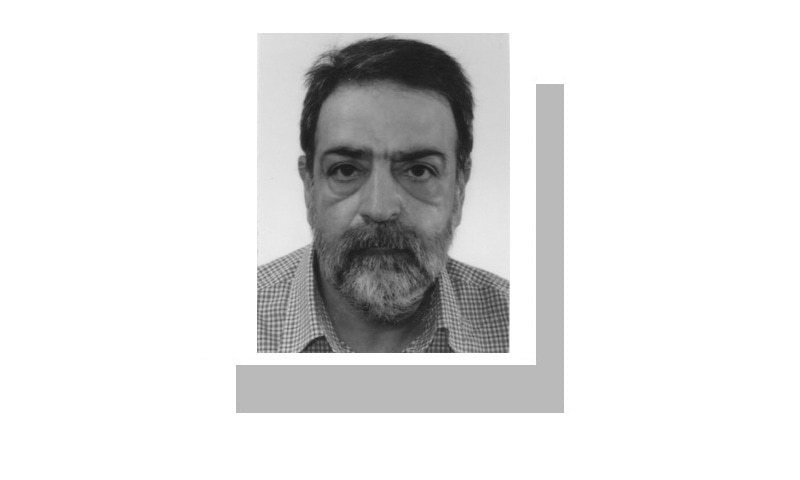THE very first verses I memorised, as little more than a toddler, began: “Aj aakhan Waris Shah nu, kithon qabran wichon bol/ Te aj kitaab-i-ishq da koi agla warqa phol…” (I say to Waris Shah today, speak out from your tomb/ And let a fresh page unfurl from the Book of Love’s womb.)
My elder brother had drummed the lines into my head, and I’m sure pretty that is as far as it went at the time. It was many years before I became aware of the context and was able to read the poem in its entirety. Addressing the Sufi poet who composed Heer Ranjha, Amrita Pritam continues: “Ik roee si dhi Punjab di tu likh likh maarey wain/ Aj lakhan dhiyan rondiyan, tainu Waris Shah nu kehn/ Utth darmandiyan deya dardya, utth waikh apna Punjab/ Aj belay laashan wichhyan te lahu di bhari Chenab…” (Just one daughter of Punjab’s woes caused your laments to flow/ Today a million daughters weep, and thee they do implore:/ Arise you chronicler of pain and witness your Punjab/ Where corpses sprout in the fields and blood flows down the Chenab.)
The poet behind these verses was born 100 years ago this week in Gujranwala, moving to Lahore as a teenager. Her poignant partition lament was composed in 1948, the year after she had been compelled to uproot herself and travel eastwards. Her timeless evocation of the bloodbath that accompanied independence seems destined to resonate indefinitely.
A searing reminder of the unfinished business from seven decades ago came earlier this month with the Modi administration’s sordid re-invasion of India-held Kashmir (IHK), which has been stripped of its semi-autonomous status amid a communications blackout that largely remains in place three weeks later. The benighted region’s tryst with destiny has turned out to be a far cry from what Jawaharlal Nehru repeatedly promised.
Delhi’s action ought not to have come as a surprise.
Delhi’s action ought not to have come as a surprise. After all, the Bharatiya Janata Party, the spawn of outfits such as the Rashtriya Swayamsevak Sangh and Vishva Hindu Parishad, has long been sworn to the idea of divesting IHK of its special status, and when it came to the crunch its move was enthusiastically endorsed by both houses of parliament. It hardly requires an extraordinary leap of imagination to assume that the ultimate aim is to ensure that Muslim-majority IHK, often portrayed by India as a testament to its secular ideals, will sooner or later lose that distinction.
In the run-up to partition, it was generally (and logically) assumed, even by the Hindu Mahasabha, that Kashmir would join Pakistan, although independence was also an option. Sheikh Abdullah’s National Conference was allied with the Congress, but the decision was up to Maharaja Hari Singh, who dilly-dallied until an invasion from the Pakistani side, spearheaded by tribal militias, persuaded him to pick India. By then, Kashmir was divided like Punjab and Bengal, albeit not along religious lines. It was India that took the dispute to the United Nations, but the plebiscite on which India and Pakistan agreed in 1948 has never taken place, not least because the mutual demilitarisation it required never came to pass.
The special status accorded to IHK in India’s constitution is now a thing of the past, even if the military occupation is hardly a novelty, and local elections have all too frequently been stage-managed by New Delhi. At the same time, Pakistan’s supposed devotion to the ‘Kashmir cause’ is reflected in a deeply depressing litany of strategic and tactical follies and fundamental flaws that have long blighted its case. It should not now be surprised that its current stance is finding few takers.
Most Arab states only ever pretended to give a toss about the Palestinians, and many of them have cosied up to the most indefensible Israeli government in history. Wooing Narendra Modi makes much more sense to them than clamouring for Kashmiri rights. China barely has a leg to stand on in this context, given its mass incarceration of Uighurs — the votaries of Hindutva still wouldn’t dare attempt anything that outrageous in the IHK context.
Successive governments in Islamabad, meanwhile, have arguably eroded Pakistan’s position to take the high moral ground, given a longstanding tendency to trample over the rights and aspirations of various ethnic groups, let alone religious minorities.
Dwelling on the past is forgivable when the future is so uncertain. The Modi regime may well get away with its excesses, at least in the short term, although it will almost certainly face considerable resistance. War would be unforgivable and mutually destructive, and mediation by Donald Trump singularly pointless. The latter certainly wouldn’t answer the question Amrita Pritam raised all those years ago: “Aj kithon liyaye labh ke Waris Shah ik hor?” (Where on earth can we locate another Waris Shah today?)
Published in Dawn, August 28th, 2019











































